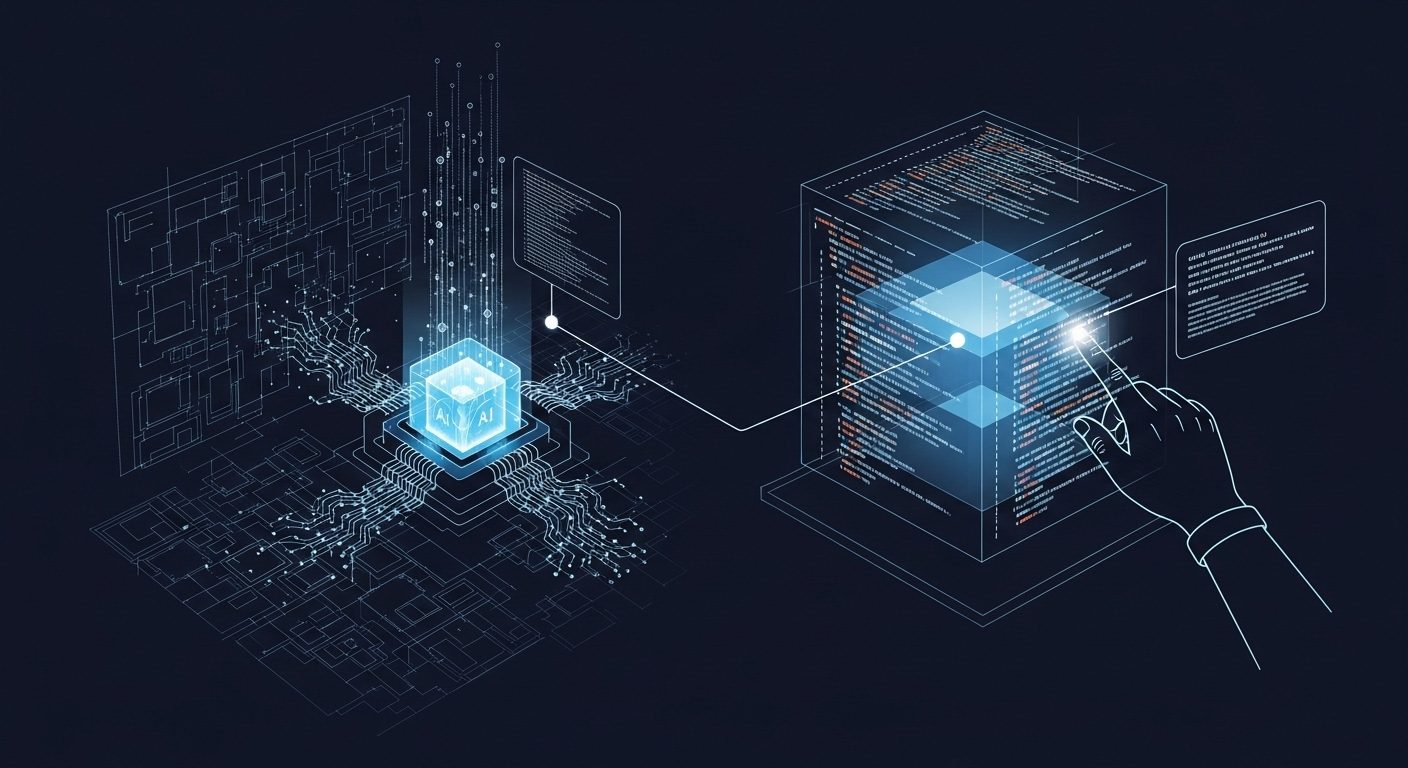Autonomous AI Agent for Codebase Analysis

The Challenge
The time it takes for a developer to understand a new or complex codebase is a significant, often hidden, cost in software engineering. Onboarding new hires, contributing to open-source projects, or fixing bugs in legacy systems can involve days or weeks of manual code exploration. This slows down development cycles, reduces team velocity, and creates friction in maintaining critical software assets. The challenge was to create an AI-powered tool that could drastically accelerate this code comprehension process.
Our Solution
We engineered an autonomous AI agent that serves as an expert on any given GitHub repository. The system ingests an entire codebase, performs an automated architectural analysis, and provides an interactive chat interface for developers to ask deep, context-aware questions about the code. This transforms the static codebase into a dynamic, queryable knowledge base.
High-Level Project Workflow
Dynamic Codebase Ingestion: The system begins by using system commands to securely git clone any public repository into a temporary, isolated environment. This ensures it is always working with the latest version of the code.
Language-Aware Code Indexing: We built a sophisticated indexing pipeline using LangChain's LanguageParser. The system recursively walks the repository, identifies supported source code files, and uses language-specific splitters to intelligently chunk the code. This method respects the structure of functions and classes, leading to highly accurate context retrieval. The processed chunks are then converted into vector embeddings and stored in a FAISS index for rapid semantic search.
Detailed Technical Architecture
Automated Architectural Analysis: Upon successful indexing, the agent first performs a high-level analysis. It reviews the repository's file structure and README content, using a large language model to generate an immediate, concise summary of the project's likely purpose, technology stack, and key components.
Context-Aware Code Q&A: With the codebase indexed, the agent enters an interactive Q&A mode. It uses a Retrieval-Augmented Generation (RAG) pipeline to answer specific developer questions. When a query is received, the system retrieves the most relevant code chunks from the FAISS vector store and provides them as context to the LLM, enabling it to deliver precise, code-aware answers.
Key Outcomes & Business Impact
-
Accelerated Developer Onboarding: Slashes the time-to-productivity for new engineers by providing them with an instant expert to answer their questions, reducing ramp-up time from weeks to days.
-
Improved Code Comprehension: Enables any developer to quickly understand unfamiliar parts of an application, leading to faster bug fixes, more confident refactoring, and higher quality code reviews.
-
Demystification of Legacy Code: Transforms intimidating legacy codebases into accessible, queryable systems, significantly lowering the barrier to entry for maintenance and modernization.
-
Enhanced Team Productivity: Frees up senior developers from an-swering repetitive questions, allowing them to focus on more critical architectural and product development tasks.
Technology Stack
-
Core Languages & Frameworks: Python, Chainlit, LangChain
-
AI & LLM Integration: OpenRouter, Anthropic Claude 3.5 Sonnet, OpenAI Embeddings
-
Code Parsing & Indexing: langchain-text-splitters, FAISS
-
System Integration: Git (via Python subprocess)